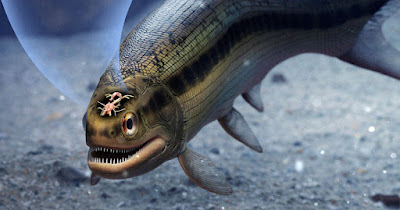OVER 319 MILLION YEARS OLD!
Blob Dylan
Thanks to a keen eye and some good fortune, researchers have stumbled across a brain believed to be over 319 million years old, making it the oldest well-preserved vertebrate brain ever discovered. And what primeval secrets it must contain.
"This is such an exciting and unanticipated find," Sam Giles of the Natural History Museum in London and coauthor of the resulting study published this week in the journal Nature, told CNN.
"It was so unexpected that it took us a while to be certain that it actually was a brain," she continued. "Aside from being just a preservational curiosity, the anatomy of the brain in this fossil has big implications for our understanding of brain evolution in fishes."
The unbelievably ancient brain was found trapped inside the fossilized skull of a coccocephalus wildi, a carboniferous and early form of a ray-finned fish. But the fossil itself is not a new discovery — it was actually unearthed over a century ago in a coal mine in England.
Because the fossil is the only known example of this fish, researchers simply wanted to get a better look using modern and nondestructive computed tomography (CT) scanning.
They found a mysterious, bilaterally symmetrical "unidentified blob" that showed up as a dense object on the CT image. Intriguingly, it also harbored spaces resembling ventricles, filaments, and cranial nerves — and researchers could hardly believe their eyes.
"It had all these features, and I said to myself, 'Is this really a brain that I'm looking at?'" said senior author and University of Michigan paleontologist Matt Friedman in a press release.
Brain to See
After zooming in for a better look, there was no denying that what the team had in possession was a bona fide brain.
The brain structure was preserved through a somewhat common fossilization process that involves minerals forming in place of delicate soft tissue. However, for the minerals to form in such "exquisite detail" is an extraordinary stroke of luck. Giles told CNN that the find is the "oldest three-dimensional fossil brain of anything we know."
And even encased in stone, this encephalon of an epochal eon can impart long-lost knowledge, helping us fill gaps in evolutionary history.
"Not only does this superficially unimpressive and small fossil show us the oldest example of a fossilized vertebrate brain, but it also shows that much of what we thought about brain evolution from living species alone will need reworking," said lead author, a fellow UM paleontologist, in the release.

